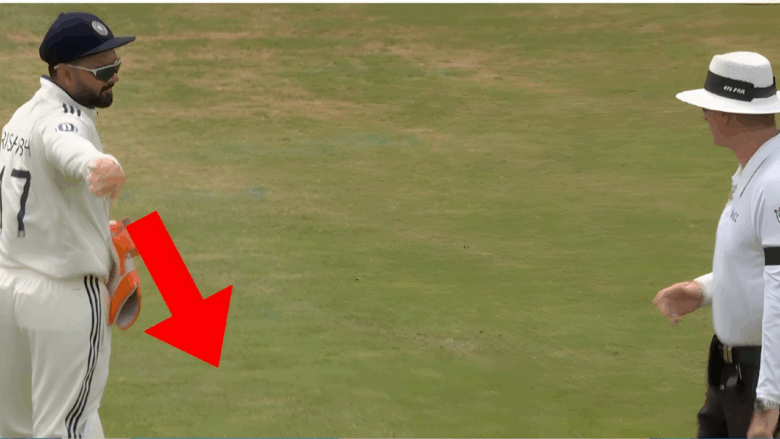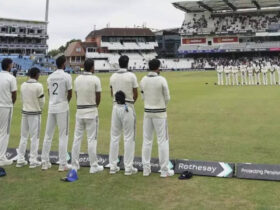Introduction: In a dramatic turn of events at Headingley during the third Test between India and England, India’s fiery wicketkeeper-batsman Rishabh Pant finds himself at the center of a controversy that could lead to serious ICC sanctions. A heated exchange over a ball-change request in England’s innings has sparked debates about player conduct, umpiring decisions, and the intense pressure of Test cricket.
The Incident: The controversy erupted during the 61st over of England’s first innings when Mohammed Siraj conceded a boundary off a ramp shot by Harry Brook. Pant, serving as India’s vice-captain, approached umpire Paul Reiffel to request a ball change, visibly frustrated with the condition of the ball. Despite Reiffel’s thorough inspection using a ball gauge—which found no irregularities—Pant continued to press his case. When the request was denied, Pant’s frustration boiled over as he threw the ball onto the ground in a back-handed manner before walking away, an action that drew loud boos from the Headingley crowd.
Reactions and Commentary: The incident didn’t go unnoticed by commentators. Former India head coach Ravi Shastri remarked, ‘When you start wanting to change the ball every now and then, it’s a clear indication that nothing’s happening for your team. That was pure frustration from Pant.’ Co-commentator Mark Butcher added, ‘I’m not sure there was any need for that gesture. We know he’s a showman, but I doubt Paul Reiffel appreciated it much.’ These reactions underline the growing tension in the match, which at the time saw England at 276-5 in response to India’s imposing first-innings total of 471.
Potential ICC Violations: Pant’s actions could land him in hot water with the International Cricket Council (ICC). Experts suggest he may have violated two key articles of the ICC Code of Conduct. Firstly, under Article 2.8, which deals with dissent against an umpire’s decision, Pant’s prolonged discussion and visible disappointment could be classified as a Level 1 or Level 2 offense. Secondly, Article 2.9 prohibits throwing a ball in an inappropriate or dangerous manner near an umpire, another potential breach carrying similar sanctions. If charged and found guilty, Pant could face fines or even a suspension, depending on the severity assessed by the match referee.
Match Context and Aftermath: The ball-change drama didn’t end there. In the subsequent overs, umpires conducted multiple inspections of the ball as Indian players, including Shubman Gill and stand-in captain Jasprit Bumrah, engaged in discussions with officials. Amidst the chaos, Siraj managed to dismiss England’s Ben Stokes shortly after, providing a brief respite for India. However, the incident has cast a shadow over Pant’s otherwise stellar contributions in the series, where he has scored 258 runs at an average of 43, including a match-defining century in the previous Test at Edgbaston.
Conclusion: As the IND vs ENG Test at Headingley unfolds, all eyes are on the ICC’s response to Rishabh Pant’s controversial actions. Will this fiery display of frustration result in a reprimand or a ban for one of India’s most dynamic players? Beyond the potential sanctions, this incident serves as a reminder of the fine line between passion and dissent in the high-stakes arena of international cricket. Stay tuned for updates on this developing story as the match—and the drama—continues.






















